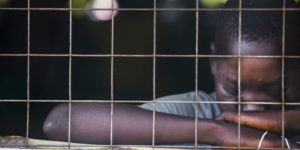
The internal conflict and resulting humanitarian crisis embroiling South Sudan since December 2013 have exposed the country’s fragility. A weak national identity, ethnically based violence, a legacy of violent conflict resolution, personalized and patronage-based politics, weak institutional checks on the abuse of power, and the absence of encompassing leadership, among other factors, all pose obstacles to peacebuilding. As a result, envisaging a stable South Sudan has become increasingly difficult for many South Sudanese and external observers.
With regional and international diplomacy rightly focused on negotiating an immediate end to hostilities, the Africa Center for Strategic Studies has asked a selection of South Sudanese and international scholars, security practitioners, and civil society leaders to share their visions of the strategic issues South Sudan must address if it is to make a transition from its current state of dissimilation to a more stable reality. These visions, taken individually and collectively, are intended to help sketch out some of the priorities and prerequisites for transforming today’s highly fragmented security landscape in South Sudan to one in which its citizens are safe in their own country and are protected from external threats.
